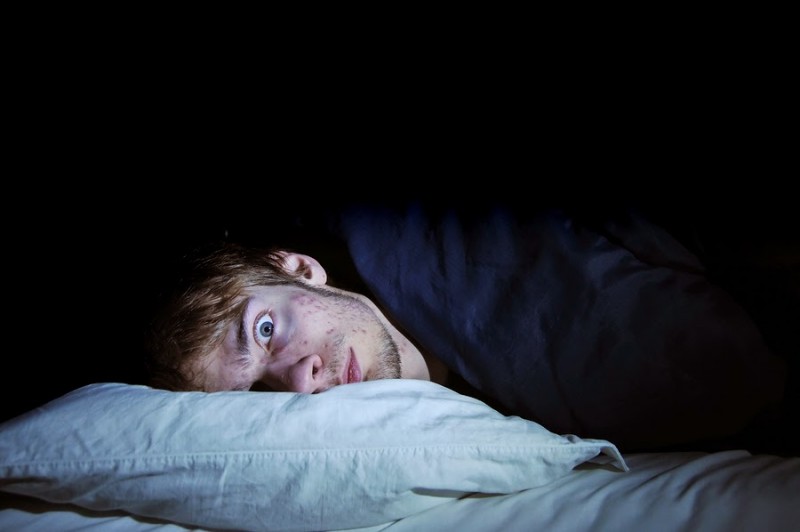
In today's fast-paced world, many individuals struggle with insomnia, a sleep disorder characterized by difficulty falling asleep or staying asleep. Lack of proper sleep can lead to various health issues, affecting both physical and mental well-being. While prescription drugs are commonly used to address insomnia, they may come with side effects and potential dependency. However, there are several natural remedies and lifestyle changes that can effectively promote better sleep without relying on prescription medications. This article explores 15 effective ways to combat insomnia and achieve restful sleep.
1. Create a Soothing Sleep Environment
The first step in promoting better sleep is to create a calming sleep environment. Ensure that your bedroom is cool, dark, and quiet to encourage relaxation and sleepiness. Invest in a comfortable mattress and pillows to support your body during sleep.
2. Stick to a Consistent Sleep Schedule
Maintaining a consistent sleep schedule is crucial for regulating your body's internal clock. Go to bed and wake up at the same time every day, even on weekends, to enhance your sleep quality and reduce insomnia symptoms.
3. Limit Screen Time before Bed
Electronic devices emit blue light that can disrupt your body's production of the sleep hormone melatonin. Minimize screen time at least an hour before bedtime to improve your sleep patterns.
4. Practice Relaxation Techniques
Incorporate relaxation techniques such as deep breathing, meditation, or progressive muscle relaxation into your bedtime routine. These practices can help calm your mind and prepare your body for sleep.
5. Herbal Teas for Relaxation
Certain herbal teas, such as chamomile and valerian root tea, have natural calming properties that can aid in better sleep. Enjoy a cup of these teas before bedtime to promote relaxation.
6. Avoid Heavy Meals and Stimulants
Eating heavy meals or consuming stimulants like caffeine and nicotine close to bedtime can disrupt your sleep. Opt for light snacks if needed and avoid stimulants at least four to six hours before going to bed.
7. Regular Physical Activity
Engaging in regular physical activity during the day can improve sleep quality. However, avoid intense workouts close to bedtime, as they may make it harder to fall asleep.
8. Settle Your Mind with White Noise
White noise, like the sound of a fan or gentle rain, can mask disruptive noises and create a more peaceful sleep environment.
9. Invest in Aromatherapy
Aromatherapy using essential oils like lavender can have a calming effect on the mind and body, promoting better sleep.
10. Limit Daytime Naps
While short daytime naps can be refreshing, excessive napping may interfere with your ability to sleep at night. Limit daytime naps to about 20-30 minutes to avoid disrupting nighttime sleep.
11. Keep Stress at Bay
Stress and anxiety are common culprits of insomnia. Practice stress-reducing techniques such as yoga, journaling, or spending time in nature to ease your mind before bedtime.
12. Use Natural Sleep Supplements
Melatonin supplements, which mimic the body's sleep hormone, can help regulate sleep patterns for some individuals. Consult with a healthcare professional before using any supplements.
13. Create a Bedtime Ritual
Establish a calming bedtime ritual, such as reading a book, taking a warm bath, or listening to soothing music. This routine can signal your body that it's time to wind down and prepare for sleep.
14. Limit Alcohol Consumption
While alcohol may initially make you feel drowsy, it can disrupt the quality of your sleep. Avoid excessive alcohol consumption, especially before bedtime.
15. Seek Professional Help When Needed
If your insomnia persists despite trying natural remedies, it's essential to seek professional help. A healthcare provider can identify underlying issues and recommend appropriate treatments.
Incorporating these natural remedies and lifestyle changes into your daily routine can significantly improve your sleep quality and combat insomnia. By creating a soothing sleep environment, sticking to a consistent sleep schedule, and adopting relaxation techniques, you can promote better sleep without relying on prescription drugs. Remember that each individual's response to these remedies may vary, so it's essential to find what works best for you.
Home-Seekers Flock to Gruha Lakshmi Registration in Bengaluru
Outrage in Maharashtra: Leader Fadnavis Vows Action Against Those Defaming Savitribai Phule!
BREAKING: Gyanvapi ASI Survey, Allahabad HC Reserves Order For Aug 3